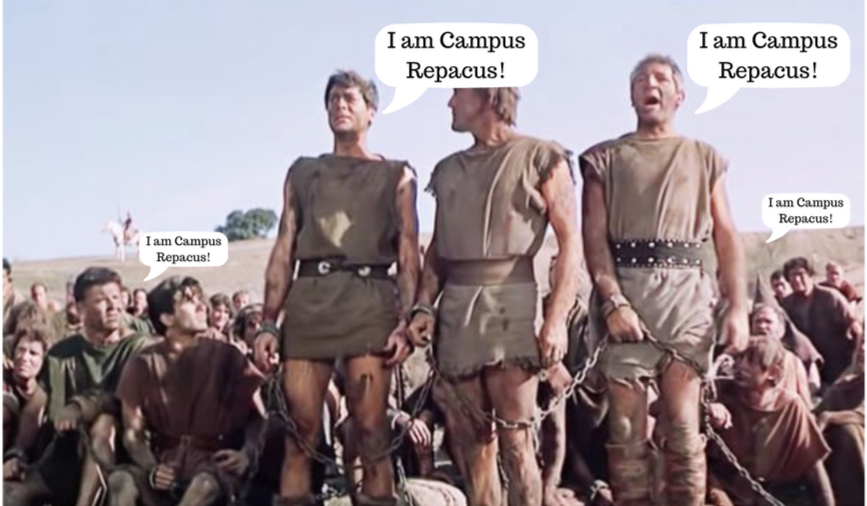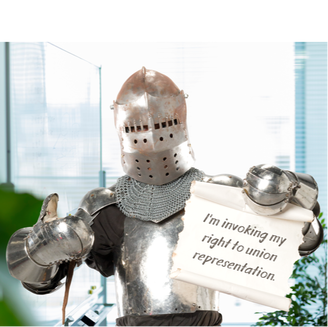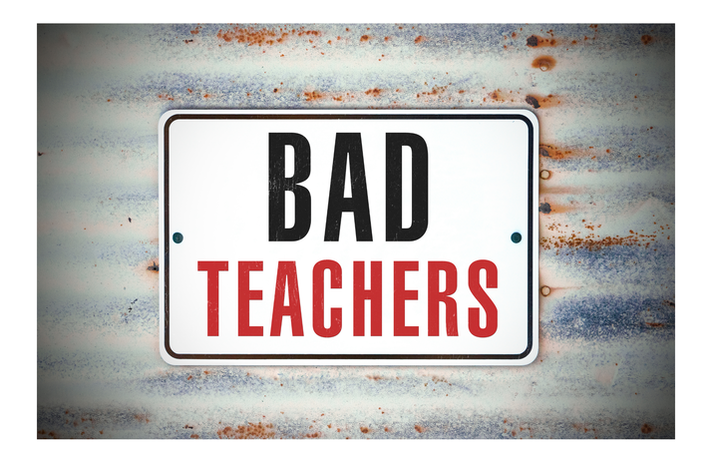|
By L. Spriggs Being non-tenured basically means you're on probationary status for the first four years before your full due-process union protections kick in. For your first three years, you can be dismissed for any non-discriminatory reason, and the district need not give you that reason. In your fourth year, however, they must provide their specific reasoning, which makes it easier to challenge a dismissal. For this reason, school districts are actually encouraged to dismiss poorly performing teachers in the first three years instead of waiting, which means if you've made it to the fourth year without any previous evaluative or disciplinary issues then there's a good chance you'll earn tenure.
Furthermore, the school board is required to notify you whether you're being rehired or dismissed the following year at least forty-five days prior to the end of the current school year. Something else that's good to know is that thanks to new rules for tenure under the PERA law, you're tenured after only 3 years if you receive 3 consecutive annual evaluations of "Excellent." Finally, if you ever have any issues or questions within those first four years, never hesitate to contact someone in the union for guidance or advice. You're still a member, after all. By L. Spriggs Unions are legally required to hold elections every few years. (The number of years varies depending on the type of union.) During these elections, the union's membership elects an executive board, also sometimes referred to as the executive council. This elected group of representatives who take care of the day-to-day responsibilities for the union mostly just approve budgets, run elections, and pay bills, but from time to time they will also discuss issues affecting the school and the membership, communicate information to the membership, and appoint committees to complete various tasks on the membership's behalf, among other things. Boards vary in size depending on the union, and some are as small as just two or three people. The executive board of a union is legally bound to conduct business by following very specific procedures to ensure members are represented fairly and equally. Furthermore, no elected member of the board has more power than another. Even the president of a board gets only one vote and cannot override a decision of the board as a whole. Each meeting of a board is supposed to follow an official order of business, or agenda, and there are specific rules and guidelines for how discussion takes place, how votes are cast, etc. You may think this is all rather stuffy and formal, but these rules serve to help prevent the board from being hijacked by members, or factions of members, with political agendas or more sinister machinations. Ultimately, it's important to understand that our Local 434 Executive Board has a duty to act on behalf of the membership as a whole, and the power of our union—any union—always resides with the membership, not its executive board or any other elected member. "[T]he power of our union—any union—always resides with the membership, not its executive board or any other elected member." By L. Spriggs  We would all benefit as a union if everyone were knowledgeable enough to advocate on behalf of a fellow member at a moment’s notice. Technically, any member may represent another. In fact, sometimes you might not prefer your elected representative for whatever reason—perhaps you've had a previous confrontation or a difference of opinion or philosophy on the particular issue at stake, for instance. For that reason, it's important to know that you can always choose another member to represent you in meetings with the administration. Although, it's still beneficial for the officially-elected campus representatives to know about issues affecting members within the workplace. This is because the way in which your individual issue is dealt with or resolved may impact everyone else by setting precedent for discipline. Either way, a good representative should have a working knowledge of the contract, the grievance process, the law, and your rights in the workplace. They should also be articulate and capable of presenting facts and information on your behalf and in your favor during a meeting. There are two situations when a union or union representative could help you concerning discipline: either the administration is investigating a situation in order to decide whether discipline is necessary, or they've already decided on discipline and that discipline has violated the contract or your due process rights. In the first instance, which is the focus of this post, you’ll likely want union representation during any investigatory meetings. In fact, the union and the administration have contractually agreed to first meet informally to solve workplace complaints before moving ahead with a formal grievance. Before one of these meetings, you have the right to talk with your union representative privately. During one of these meetings, your union representative may ask clarifying questions on your behalf, may request more information from the administrator, may make requests for the administrator to rephrase or clarify questions, and may provide more information to the administrator at the end of the meeting. Now, you might be thinking, "I could do all of those things for myself. Why do I need a union rep. if that's all they can do?" And for some of you, you're absolutely right. However, unionized employees actually have quite a few more legal protections against unfair discipline, and we'll discuss those protections in more detail in future posts. Furthermore, a company will often handle a situation quite differently once they know the union is involved, which tends to benefit even members who are otherwise perfectly capable of advocating for themselves. We often hear stories of unions protecting the jobs of undeserving teachers. I don’t plan to focus on those outliers too much here or in future newsletters, but I’d like to address it in brief. Unions are required by law to protect all members’ rights. They can’t pick and choose whose rights to protect, and they have no legal say in the hiring and firing process. In fact, even if a union removes a member from its ranks for unprofessional, unethical, or egregious behavior, it’s still legally obligated to represent the employee.
A union offers very little protection against justified discipline or termination as long as management follows the contract and documents and carries out discipline in accordance with the law and due process. Essentially, unions don’t protect "bad" teachers; instead, administrators do when they fail to properly document discipline and follow legally enshrined due process protections, such as providing appropriate feedback and remediation for mistakes. Unions are simply adhering to a legal obligation to advocate for all members. Fun stuff.
Every union, once formed, must create a constitution and bylaws. Nowadays, just referring to them as bylaws is fine. Having bylaws isn’t optional. It’s required by federal law, and once created, unions are legally bound by their bylaws. We can’t just decide to ignore them when it feels good or when following them becomes a little too inconvenient, at least not without risking lawsuits that will end up costing our members money. In fact, if you discover that your elected union officers are not adhering to their bylaws, you should call them out on it. If they don’t fix the issue within a reasonable amount of time, you have a right and obligation to file a formal complaint with the National Labor Relations Board. We highly encourage everyone to read through their bylaws at least once. You can find them on our website. It’s surprisingly easy for unions, even large ones, to become complacent when it comes to performing their legal obligations and following their bylaws, so it’s important to have at least a few diligent, knowledgeable members involved in the union. It’s not safe to assume someone else is keeping the union accountable to the law or to their members, either. It might have to be you. In fact, a few years ago I drew attention to some election issues that needed to be fixed in order to align with the law, and the union worked hard to fix the issue before the next election. It was simply a matter of being ignorant of the law, not malicious non-compliance on the part of the union, but fixing the issue necessitated a knowledgeable member following proper channels. Just Google “Teacher Falsely Accused” and you’ll find evidence that even the best of us can find ourselves on the wrong end of an administrator’s, parent’s, student’s, or even another teacher’s unfair, inaccurate, or patently false accusations. If this happens, you have protection and a union to fight for your rights.
Even if you did something worthy of discipline, you still have rights, and it’s difficult to fire a teacher without just cause. Furthermore, thanks to unions and union advocacy, most issues are required by the contract and state law to be formally documented and remediated before a school board dismisses a tenured teacher. As long as you don't do anything outstandingly bad, you’re likely going to just get a warning and some steps to take to fix the issue. Even if something goes in your personnel file, there are laws to prevent sharing most discipline information with anyone else, including future employers. Finally, even if you do something the administration deems as egregiously bad, but you or the union disagrees—perhaps based on context or mitigating circumstances--the District is required to provide, at minimum, a notice of the charges against you, proof for those charges, and a chance for you to respond to the charges in a hearing before the board of education. For tenured teachers who sometimes stay up late at night worrying about whether what they said or did in class is going to get them fired, it’s most likely not. You might get a stern talking-to, or a warning added to your personnel file, but your job is likely safe.  1. We negotiate contract details for our members, most of which fall under three categories, salaries, benefits, and working conditions. (This is generally referred to as the collective bargaining agreement.) 2. We provide support for members when their contract rights are being violated or they’re being unfairly targeted for discipline without due process. (Due process refers to the process that the administration must go through in order to carry out discipline. This process can be found in the collective bargaining agreement. Due process has a broader legal meaning as well, but this is the short-and-sweet version.) What the union can’t do (According to the law and legal precedent.) 1. We can’t violate the protected rights of our own members. (These rights include the right to free speech and due process, among others. Click for more info.) 2. We can’t punish members for exercising any of their protected rights. 3. We can’t punish or expel members without following due process ourselves. 4. We can’t protect members if they participate in egregious—meaning outstandingly bad--or repeated misconduct. 5. We can’t violate an existing contract. At least not without risking serious and costly legal repercussions.  If this thought crosses your mind when dealing with workplace issues, it's time to contact your union rep. Union members have rights that employees in non-unionized workplaces don't, and one of these rights is to have representation during any meeting with administration that might lead to discipline. It's kind of magical, actually, because you can invoke this privilege right in the middle of a meeting. Say you're called down to speak to an A.P. or the principal about something and you're suddenly ambushed with accusations of inappropriate comments you made in the classroom. If you believe a discussion with an administrator could in any way lead to discipline, you can stop the meeting and request union representation before you agree to continue the discussion. Legally, the administrator has to abide. If they refuse, you can just refuse to say anything further until they do. It's your legal right. Even better, you can't be punished for requesting union representation or refusing to discuss the issue until you have a union representative present. You basically have a union-made suit of armor, and this works for any situation with an administrator where you think you might face discipline. Follow this link for more information about Weingarten Rights. Bonus Material: What if an administrator says I'm not in trouble and they just want to discuss an issue? Go to the meeting and discuss the issue. If at any point they change their mind and potential discipline is suddenly on the menu, it's time to stop the meeting and order a union representative. Basically, if you're tenured and there's not going to be an official discipline report or derogatory statement added to your personnel file, there's not much for the union to do since you're otherwise protected by due process as outlined in our contract and state law. |
Categories
All
Archives
May 2023
Editor:
Proud alumnus, union member, and educator in District #201 since 2006. Contributors
Dr. Hentze is the author of High Finance with Hentze, a monthly blog that provides news about District 201's current financial state. |



 RSS Feed
RSS Feed